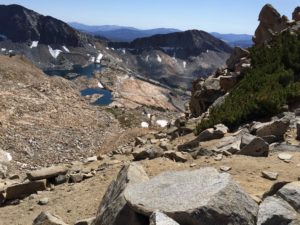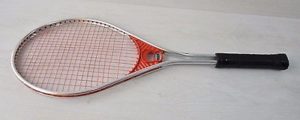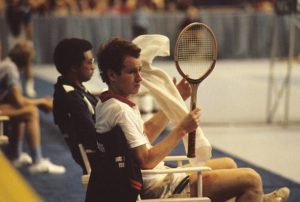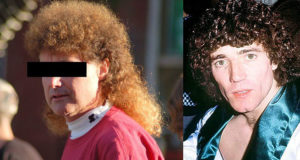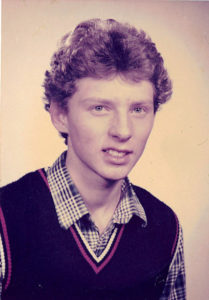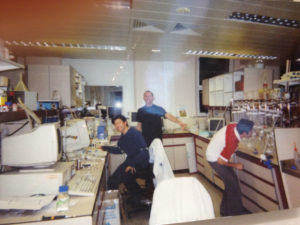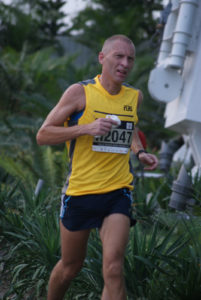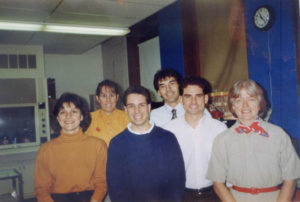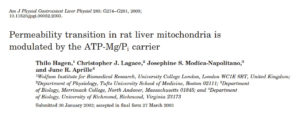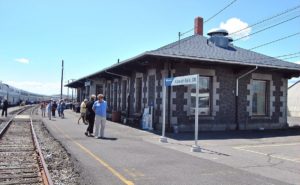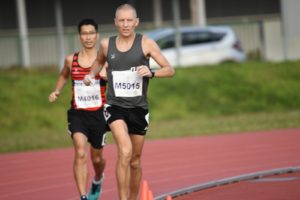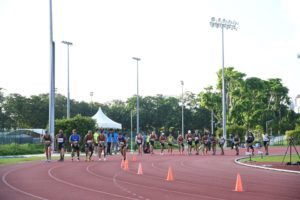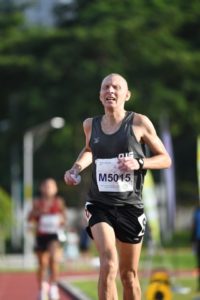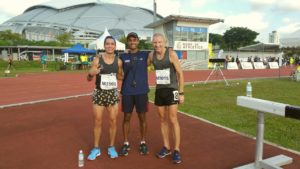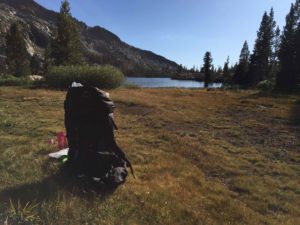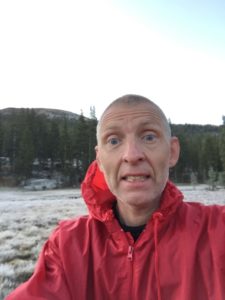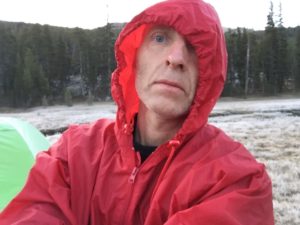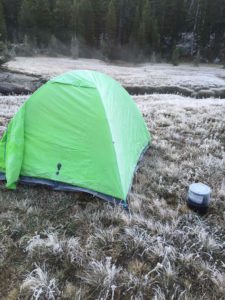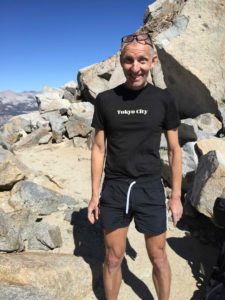Formative things I have done
This is a random selection of things that I have done and which really left an impression or changed me in some way. I plan to extend this section over time.
To my mentors
Perspective taking
Of all the traveling that I have done, there is one that really stands out and was definitely the most formative for me, in many ways. At the end of my first 8-month research stint in Boston, I went travelling the U.S. I used most of my savings to buy an Amtrack rail pass, which allowed me to go anywhere within the U.S. during my holiday.
And then I traveled by myself for 5 weeks. I personally feel that traveling alone is great, as I am more conscious of the environment. I am also more ready to take in new impressions (because there is nobody else to distract you) and to meet new people, too. Of course, travelling alone also allows you to decide on your own what you want to do and up to what limit you want to go, without having to consider your fellow travellers.
The biggest limit during my travels was my budget. Since I used up most of my savings to buy my rail pass, I was only left with a daily allowance of around 15 dollars, which became less as the trip progressed because I overspent.
And what’s more, I almost lost my money on more than one occasions. There was the moment at the beginning of my travel when on Times square in Manhattan someone asked me for the time. My accent (and looks) must have revealed that I was a tourist. And so a few minutes later the same man re-appeared next to me, this time saying “Look, I have a gun.” I remember well that I didn’t look (and never found out if he really had one). With a beating heart, I walked straight on across the street into the nearest shop, and didn’t come out for 15 minutes. Those seconds when I walked away from the “gun person”, not knowing what was happening behind me, were some of the scariest of my life.
And then there was the time when I arrived at 2:30 am at the Pasadena bus terminal. It was dark and there was nobody at the station and on the streets. So I walked with my backpack through the streets in the middle of the night, looking for a place to sleep. At which point two teenagers were approaching from the other direction, and I could hear how one was trying to encourage the other to mug me. Luckily, they were both afraid, and so was I of course. And for a second time, I managed to not lose my money.
I guess I learned that it is not a good idea to arrive at an unknown place in the middle of the night without a plan.
Due to my limited budget, I basically had to decide whether I wanted to use my money to eat or to sleep. Needless to say, I chose to eat, and to this day, I still remember many of the meals I had, because I was so looking forward to them. My best meals included mini-pizza for $1.50 in the train canteen, an all-you-can eat salad bar at Wendy’s and an amazingly huge Hamburger at a snack bar somewhere near Olympic National Park. I still remember sitting by the side of the road and enjoying it so much.
And there was the bus ride I took to Crate Lake National Park from Klammath Falls railway station.
There were only 4 people on the bus, a Scottish couple whom I could not understand at all and one retired American lady. The lake was amazing, but the best thing was that the retired lady invited me for dinner after the trip. It was a great way for me to get to know this small town and I actually kept in touch with the lady for some time after the trip.
Because I used my budget to buy things to eat, I slept as much as possible on the train, but if not then I had to make do with train stations or public parks. What I realised through this is that not knowing where you will sleep during the night is a terrible feeling. It prevents you of being able to enjoy what you do. And then during the night, there is the constant anxiety of police coming and checking on you. Luckily the police only checked on the real homeless people around me, but I could at least sense how humiliating and upsetting the feeling is.
I remember one particular night in Seattle, where I walked to some suburb from where I could have a great view of the city. And, while there, for lack of better options, I decided to sleep in a park in some bushes – until I heard someone or something approaching. I did not know what it was, but I of course started running. And in the middle of the night I walked through Seatlle, ending up in the Greyhound bus stop, where it was warm (yeah). But the chairs were really uncomfortable and I could not wait for the morning to come so that I could get back on the train.
Hence, I really appreciated when I was out in National Parks hiking, because in the evenings, I coud set up my little tent. And I could sleep without any worry, looking forward to a new day.
In hindsight, having little money on this holiday was really a blessing, because it allowed me to engage in what in psychology is called perspective taking. What is meant by that is for instance that we can only truly understand homeless people if we experience what being homeless is like. In other words, we cannot really develop empathy and a good understanding towards homelessness and homeless people if we only read about the causes of homelessness and problems homeless people face.
Not understanding others and not having had the same experience as them creates prejudice. As we can see on the world stage, with the growth of anti-immigrant sentiment in the US and in Europe and the rise in popularity of right wing parties in many democracies, this can have serious consequences, and can even cause major conflicts. Of note, studies have indeed shown that perspective taking can actually reduce negative views towards immigrants (see for instance this reference).
But prejudice towards others, which most of us (including me) have at least to some degree, can also affect all our everyday life. It can really hurt if someone judges us based on who we appear to be, as opposed to who we actually are. Therefore, we should strive to eliminate prejudice by understanding others better. One great way to understand others better is of course to participate in volunteer programmes. But at the same time I believe that only by temporarily giving up things we normally take for granted and exposing ourselves to the circumstances that underpivileged people experience can we truly understand their problems.
In addition, temporarily giving up things also has other benefits. For instance, by temporarily giving up small things that we take for granted, we get an understanding of how important these things really are. Knowing that we can do without certain things might also give us more confidence and reduce anxiety. For instance, knowing that we can get by with little money would probably make us less stressed out about having to find a job with a very high salary. By temporarily giving up certain things we may even recognise we don’t really need them. And most importantly, giving up things makes us more tolerant and open to different views, which makes our society a better place for all of us.
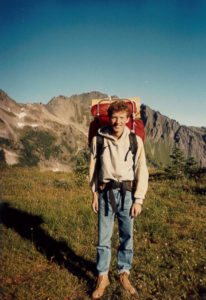 Of the few hikes I did in my life, the 6-day hike in Yosemite National Park during my US travel in 1991 was the most amazing one. And in 2019, I am planning to do it again!
Of the few hikes I did in my life, the 6-day hike in Yosemite National Park during my US travel in 1991 was the most amazing one. And in 2019, I am planning to do it again!
6 July 2019 – Breaking 20 min over 5,000m (What a difference a few seconds make)
My hiking trip in Yosemite National Park in September 2019 – The amazing power of taking a break
